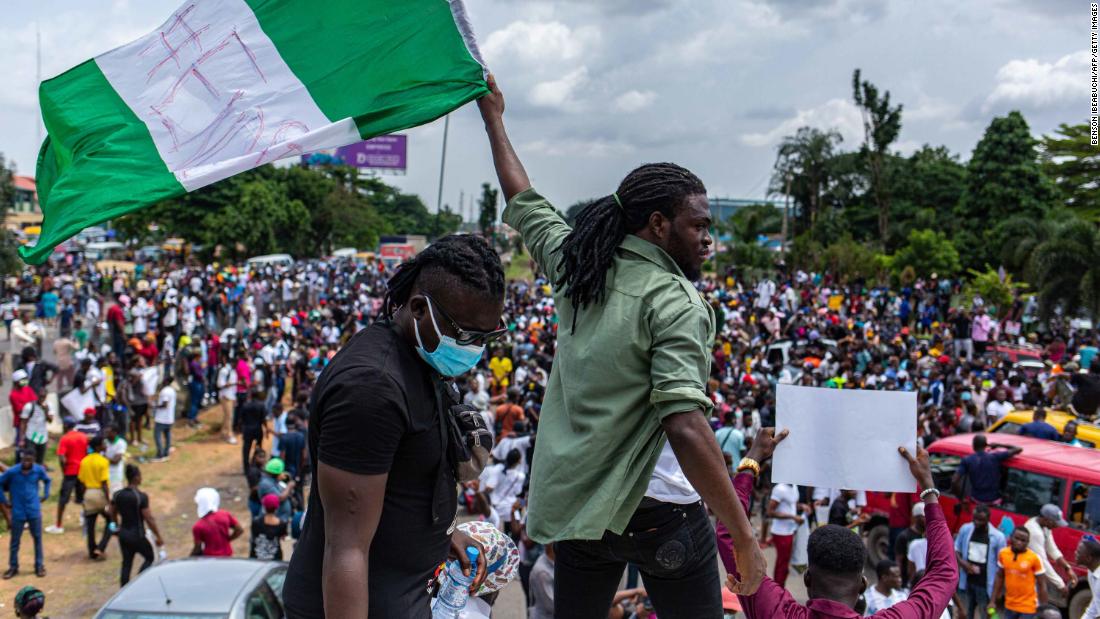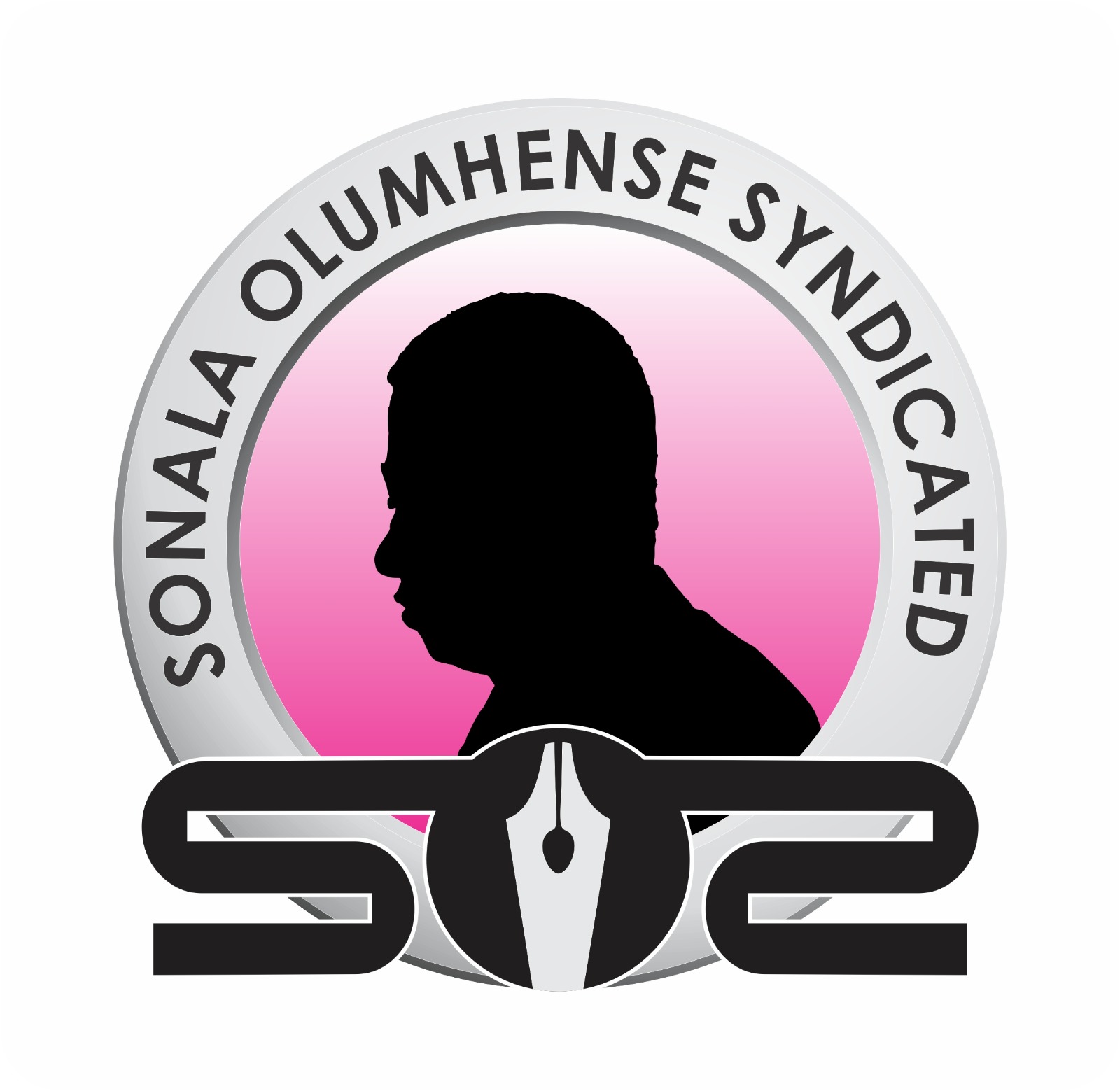Scenario One: Nigeria’s so-called secret police, the Department of State Services (DSS) on Wednesday announced that it has “identified some key players in the plot for an Interim Government in Nigeria.”
“The Service considers the plot, being pursued by these entrenched interests, as not only an aberration but a mischievous way to set aside the constitution and undermine civil rule as well as plunge the country into an avoidable crisis,” it said in a poorly-written statement, adding, “The illegality is totally unacceptable in a democracy and to the (sic) peace loving Nigerians.”
The service gave itself away when it then said, “This is even more so that the machination is taking place after the peaceful conduct of the elections in most parts of the country.”
I must be clear: there is no provision in the Nigerian constitution for an interim government, and I do not support any such plan, were one to exist.
That said, Nigeria elections are also clearly outlined in law, and nowhere does it provide for the atrocious performance of the electoral commission in the 2023 elections that included outright manipulation.
When that kind of service is delivered, injustice is the result, but in a democracy, justice is the objective. When injustice is delivered, affected citizens have a right to react by means of public protests and legal action.
In other words, DSS is right: the elections were mostly peaceful. But it is also false that there is a plot in Nigeria for an interim government. Neither legal action nor street protests are a “plot” of anything, especially to pre-empt transition to a duly elected government.
If DSS found an illegal plot, the correct response would have been to ensure arrest and prosecution rather than this brazen witch-hunt that is clearly designed to uphold the work of another flawed institution: the Independent National Electoral Commission (INEC).
The electoral commission, as hundreds of election observers have reported, conducted a shambolic shameful, and amateurish exercise in brazen contradiction of the electoral law and the agency’s own guidelines.
The decision of DSS to respond to the legal and protest actions against that performance with intimidation and blackmail is even more embarrassing than the performance of INEC. It is a solid reflection of how corrupt instruments of the Nigeria state continue to be.
The elections may have been largely peaceful, but they were far more remarkable for rigging, voter-suppression, vote-buying, ethnic-baiting, ballot-snatching and sundry acts of intimidation: a lot of it captured by stunned voters in hundreds of widely-available photographs and video.
That DSS pretends to be a credible and respected institution because it has excess funds for this fake pursuit illustrates what is wrong with Nigeria. The agency must keep in mind the fundamental rights of Nigerians as provided in Chapter Four of the constitution, particularly Sections 37-41, which affirm—among others—that:
- The privacy of citizens, their homes, correspondence, telephone conversations and telegraphic communications is hereby guaranteed and protected.
- Every person shall be entitled to freedom of thought, conscience and religion…
- Every person shall be entitled to freedom of expression, including freedom to hold opinions and to receive and impart ideas and information without interference.
- Every person shall be entitled to assemble freely and associate with other persons…for the protection of his interests…
- Every citizen of Nigeria is entitled to move freely throughout Nigeria and to reside in any part thereof…
In other words, if DSS has any evidence, it should arrest and prosecute. Unless, of course, it is itself at the heart of a conspiracy to compromise the constitution, justice and the best of interests of Nigerian.
Scenario Two: the police, a prominent federal agency with clear responsibilities at elections.
In various polling units in February and March, however, the police appeared to have been present only to prevent law-abiding voters from interfering with illegal conduct rather than to ensure legal and orderly electoral activity. Abundant evidence of such conduct nationwide was not matched by timely arrests, and certainly not of prominent Nigerians involved in real-time illegality.
Last Monday, however, Alkali Usman, the Inspector General of Police, announced that 781 persons are under arrest for alleged electoral offences.
This would be good news except for two things. First, hardly anyone was seen on those elections videos being arrested even when the offences happened in front of police officers. Why were they at the polls?
Second, who are Mr. Usman’s 781, INEC-selected victims? In Lagos, weeks after the elections, including late last week, some prominent election offenders were anything but under arrest. Who are the dubious 781, Nigerians without godfathers?
Making his announcement last week, Mr. Usman commended members of the police force, citing their “resilience, sacrifices, and professionalism which ensured the containment of the pockets of election security breaches…and enhanced the overall credibility of the elections in line with the police reform initiatives of President Muhammadu Buhari.”
It is not difficult to see why, like INEC and DSS, the police have serious credibility issues, or why the force has become the most untrusted public body in the country. Like those other bodies, its attention is not to the service of Nigeria, but of the establishment.
Scenario Three: The EFCC on March 23 announced that it will go after some outgoing public officials after May 29.
Commission chairman Abdulrasheed Bawa bragged to Daily Trust that those officials would include governors. But of course! The constitution provides institutional cover only to the President, the Vice President, governors and deputy governors during their terms of office.
The problem with Mr. Bawa is that he went on to speak about “at least two ministries” with massive issues of fraudulent procurement processes. He did not identify the Ministries involved but implied that on account of immunity issues, the arrest of the Ministers has to wait until midnight on May 30.
Again, this explains why the EFCC lacks credibility. Ministers and permanent secretaries enjoy only EFCC protection when Mr. Bawa suggests his hands are tied when he should be handcuffing the officials involved.
It is why Nigeria does not work, and I have written about EFCC duplicity several times within the context of the Muhammadu Buhari government’s wink-wink war on corruption. Read any report of the Auditor-General and it is difficult to believe that anyone—are you, EFCC?—is addressing financial crime in Nigeria.
Think about it: former Akwa Ibom governor Godswill Akpabio headed the Niger Delta Affairs Ministry for three years but in the face of allegations of a N40 billion fraud the EFCC has now only entered a letter-writing relationship with the man as he relaxes abroad?
Or this: under Buhari’s squeaky-clean administration he first spent in six years ₦6.4 billion on the Aso Villa Clinic he never recognized or used and then in his final two years makes a N21billion upgrade so that it is good enough—according to Chief of Staff Ibrahim Gambari—to be good enough for visiting leaders?
For those who are unclear, this is exactly the basis of the outrage of Nigerian youth and those who think like them. Whatever resources you have appropriated or whichever forked tongue you may be wielding, the genie is not returning to the bottle.
This column welcomes rebuttals from interested government officials.
- [email protected]
- @Sonala.Olumhense


 Join Daily Trust WhatsApp Community For Quick Access To News and Happenings Around You.
Join Daily Trust WhatsApp Community For Quick Access To News and Happenings Around You.


